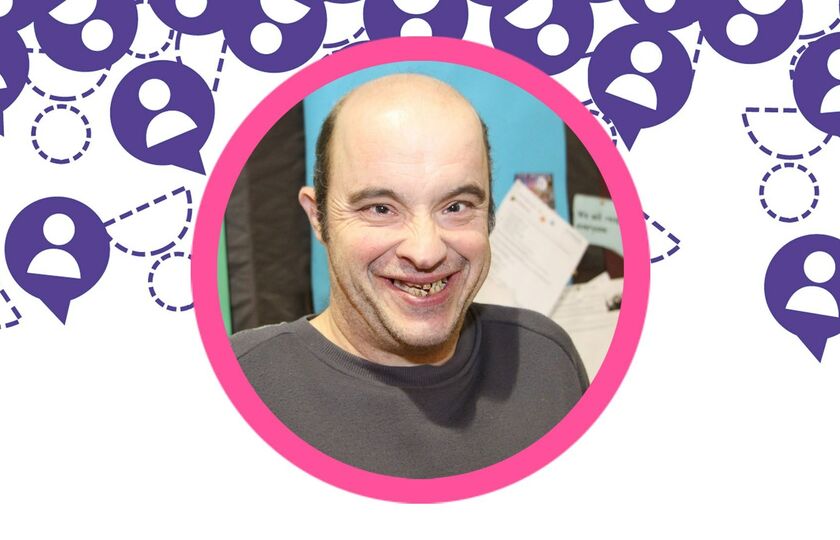Blog
Stand by Me

Take part in a new UK-wide research study on supporting couples when one partner has dementia.
Relationships and marriages between couples with a learning disability are to be celebrated, as is the longer life expectancy now enjoyed by many people with a learning disability. However, we know that people with a learning disability, especially Down’s syndrome, are at an increased risk of dementia as they age.
Our current UK-wide research study is the first study to explore how dementia affects couples with a learning disability. The idea for this study came from a self-advocate and married man with a learning disability, Andrew, who has dementia. He shared his concern about how the diagnosis may impact on the relationship with his wife. We quickly realised that there has been no research on this topic to date and no guidance is available to support him, his partner or their ongoing relationship.
We believe that it is important to understand how dementia affects couples. Relationships are important for people’s wellbeing and there has been a shift over past decades in policy and practice to recognise the right of people with a learning disability to have intimate relationships. Research has shown that relationships and marriage can provide a sense of belonging, security, acceptance, and enhance the quality of life for people with a learning disability. However, there is also an awareness that people with a learning disability continue to face barriers to form and maintain relationships. We hope that our study will provide essential information that can help to sustain relationships, support positive interactions, and improve the wellbeing of both partners.
What are we doing in this research?
We have already spoken to several couples or one of the partners, their families and staff that support them. We really appreciate people sharing with us inspirational stories of people’s love and care for each other. We have also heard about challenges too. Interviews have mainly taken place via Zoom or Teams, but we have also met face to face with some people. In interviews we have explored the journey of couples, what changed because of dementia and what has helped couples. To include people with a learning disability in the research (sometimes including the partner with dementia) we have been using a social story approach. This involves celebrating each relationship and how it has changed over time, including hopes and fears of partners. To do this we are using a roadmap to look at different stages of people’s relationship: How the couple met, how their life was like before dementia and what has changed because of dementia.
An advisory group including adults with a learning disability is guiding the research which is funded by the Dunhill Medical Trust. Most interviews have lasted between 40 to 60 minutes and people have reflected that they enjoy celebrating the story of each couple.
Who do we want to speak to?
We are still recruiting across the UK until July 2022 and are involving three groups of participants:
- People with a learning disability who are in a relationship affected by dementia (or have been in a relationship in the past). We are speaking to couples together or separately, and the involvement of both partners is not essential.
- Social care staff with current or previous experience of providing support to one or both partners in a relationship affected by dementia.
- Family members who have, or had, a relative in a relationship where one partner has/had a diagnosis of dementia.
Would you like to take part or find out more?
If you are interested in taking part, or if someone you know may like to be involved, please contact Paula Jacobs for more information including in an easy read format. We can talk to you using Zoom or Teams or by telephone or can travel to meet you if preferred and in line with government guidelines at the time.
You can also read more about the study and our blogs on the project website.




